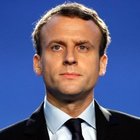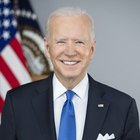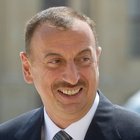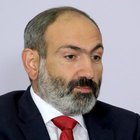Following an exchange of views about efforts to combat the spread of the coronavirus infection that are being undertaken in both countries, the presidents focused on current international affairs.
With regard to the question on the situation on the Belarus-EU border raised by Emmanuel Macron, the President spoke in favour of discussing these problems during direct contacts between EU representatives and Minsk. The fact that Poland and the Baltic States are violating their international obligations to protect the rights of refugees and that the migration crisis needs to be overcome in accordance with humanitarian law was noted. Hope was expressed that the migrant-related problem on the border would be removed from the agenda soon.
The sides presented their principled assessments of the current situation in Ukraine. Vladimir Putin provided specific examples of violations by Kiev of the Minsk agreements, which is the only viable path towards overcoming the internal Ukraine crisis. It was also noted that the Ukrainian authorities are purposefully aggravating the situation on the line of contact, and are doing so with the complicity of a number of Western countries. In addition, modern weapons are being pumped into Ukraine, which poses direct threat to Russia's security.
The President emphasised the importance of immediately launching international talks to develop legally stated guarantees to forestall NATO’s further eastward expansion and the deployment of weapons that threaten Russia in neighbouring states, primarily, Ukraine. This issue also came up during a recent videoconference with US President Joseph Biden.
The President called on his French partners to be receptive to these concerns and to take part in discussing them.
The state of affairs in the Nagorno-Karabakh settlement was reviewed in depth as well. Vladimir Putin briefed his counterpart on the trilateral meeting of the leaders of Russia, Azerbaijan and Armenia in Sochi on November 26, which was timed to coincide with the anniversary of the signing of the Statement on Nagorno-Karabakh on November 9, 2020. He updated his counterpart on the measures being taken locally to comply with the ceasefire, to have refugees return home, and to restore trade and economic links and transport service.
Hope was expressed that the meeting of the heads of the EU bodies with Ilham Aliyev and Nikol Pashinyan scheduled for December 15 would also be useful.
The expediency of stepping up the efforts of the OSCE Minsk Group with co-chairs (Russia, the United States, and France) was supported.
The parties agreed to continue to maintain close personal contact.



